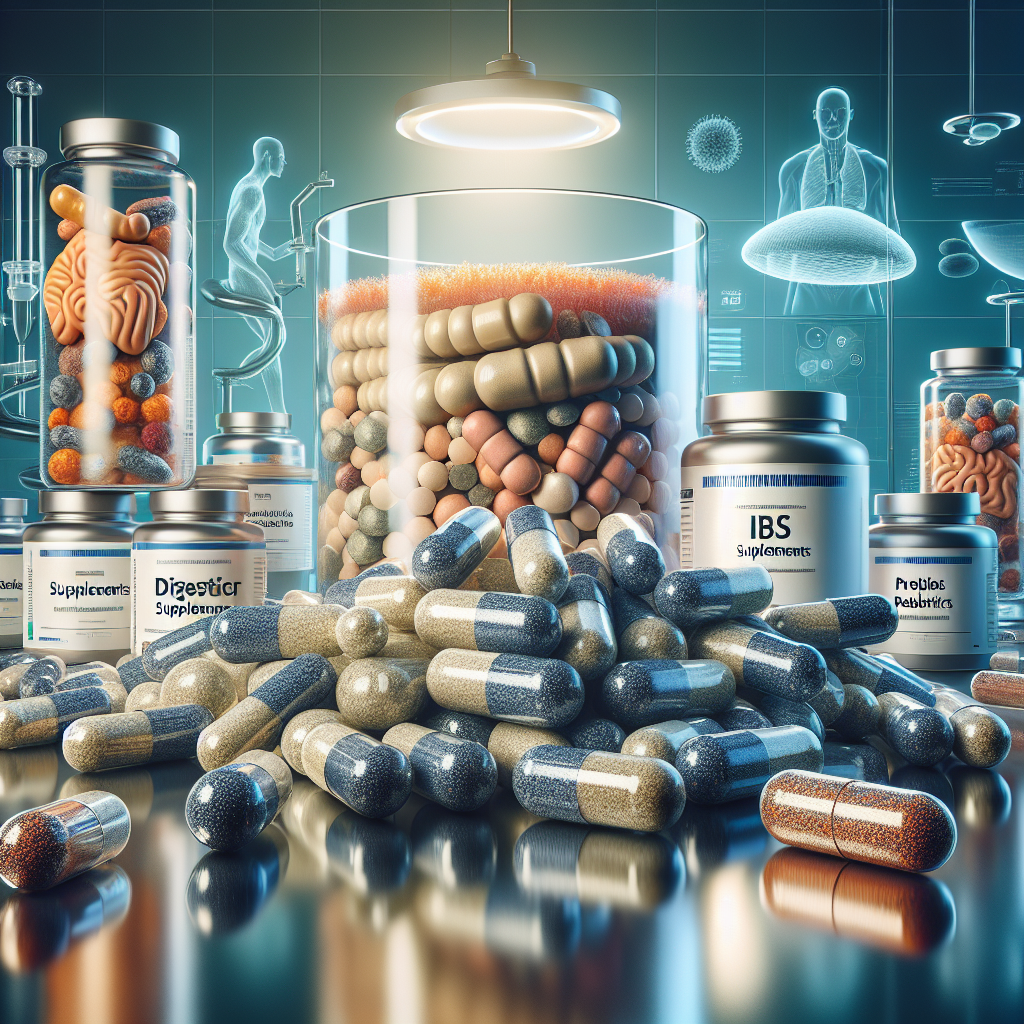Supplements for IBS and Digestive Disorders: Scientific Strategies for Gut Relief
Living with Irritable Bowel Syndrome (IBS) and other digestive disorders can be a challenging experience. Symptoms such as bloating, gas, diarrhea, and constipation can significantly impact your quality of life. Fortunately, there are various supplements for IBS and digestive disorders that can help alleviate these symptoms. In this article, we will explore effective IBS supplements, digestive disorder supplements, and the role of probiotics for IBS, providing you with scientific strategies for gut relief.
1. Probiotics for IBS
Probiotics are live microorganisms that can provide health benefits when consumed in adequate amounts. They are particularly beneficial for individuals suffering from IBS. Research has shown that certain strains of probiotics can help reduce bloating, gas, and abdominal pain. Look for IBS supplements that contain specific strains such as Lactobacillus plantarum and Bifidobacterium infantis, which have been clinically proven to improve gut health.
2. Digestive Enzymes
Digestive enzyme supplements can aid in the breakdown of food, making it easier for your body to absorb nutrients. For those with IBS or other digestive disorders, these supplements can help alleviate symptoms like bloating and discomfort after meals. Look for digestive disorder supplements that contain a blend of enzymes, including amylase, protease, and lipase, to support the digestion of carbohydrates, proteins, and fats.
3. Fiber Supplements
Fiber is essential for maintaining a healthy digestive system. However, individuals with IBS may struggle to consume enough fiber through diet alone. Soluble fiber supplements, such as psyllium husk, can help regulate bowel movements and improve overall gut health. These IBS supplements can help manage both constipation and diarrhea, making them a versatile option for those with digestive disorders.
4. L-Glutamine
L-Glutamine is an amino acid that plays a crucial role in gut health. It helps maintain the integrity of the intestinal lining and can reduce inflammation in the gut. For individuals with IBS, L-glutamine supplements may help alleviate symptoms and promote healing of the gut lining. Consider incorporating this supplement into your routine if you experience frequent digestive discomfort.
5. Peppermint Oil
Peppermint oil has been used for centuries as a natural remedy for digestive issues. It has antispasmodic properties that can help relax the muscles of the gastrointestinal tract, providing relief from cramping and bloating. Look for enteric-coated peppermint oil capsules, which ensure that the oil is released in the intestines rather than the stomach, maximizing its effectiveness.
6. Turmeric and Curcumin
Turmeric, particularly its active compound curcumin, is known for its anti-inflammatory properties. For those with IBS and other digestive disorders, turmeric supplements can help reduce inflammation in the gut and alleviate symptoms. Incorporating turmeric into your diet or taking it as a supplement may provide significant relief.
Conclusion
Managing IBS and digestive disorders can be complex, but the right supplements for IBS and digestive disorders can make a significant difference. From probiotics for IBS to digestive enzymes and fiber supplements, there are numerous options available to support your gut health. Always consult with a healthcare professional before starting any new supplement regimen to ensure it aligns with your individual health needs.
For more information on effective strategies for gut relief, visit our blog at Supplements for IBS and Digestive Disorders: Scientific Strategies for Gut Relief. Take control of your digestive health today!

